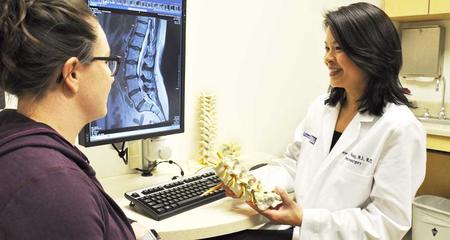OurNeuro-Oncology Cognitive Clinic specializes in helping cancer patients cope with cognitive, behavioral and emotional changes that may be caused by their disease and/or treatment. The clinic is unique in the region.
Treatment in the Neuro-Oncology Clinic
In the clinic, the neuropsychologist:
- Conducts comprehensive neuropsychological evaluations to characterize what effect a patient’s cancer has had on cognitive and emotional functioning
- Evaluates patients very early on in their illness (shortly after diagnosis but before treatment starts) to establish a cognitive and emotional baseline
- Conducts follow-up testing on regular intervals, which are then compared to the initial baseline evaluation to monitor for cancer and/or treatment related changes in cognition
- Assists in developing a treatment plan for cognitive, emotional and behavioral problems
- Assists patients in returning to work or, if necessary, filing disability claims, obtaining academic and/or vocational accommodations, determining what type and how much supervision is needed to ensure a patient’s safety and help secure rehabilitation services.
Cognitive Side Effects of Cancer
When someone has cancer, he or she may experience a lesser known side effect of the disease and/or treatment. The side effect involves changes in cognition — a person’s ability to think, reason and perceive. A person’s behavior and emotions may also change. These changes may occur because cancer in the brain (a brain tumor) or cancer treatment can affect the way the brain works.
Cognition includes the ability to:
- Understand and perceive information
- Concentrate or pay attention
- Perform multiple tasks at once
- Reason or make judgments
- Plan and organize
- Learn and remember
- Read
- Solve problems
Early Evaluation Important
It’s important for people who are diagnosed with a brain tumor to have their cognitive skills evaluated at the time of diagnosis. By the time a tumor is found, it may have already affected cognition. Treatment may also cause cognitive changes. Therefore, an initial evaluation can measure the person’s current cognitive level, and follow-up testing can show any changes that may occur following treatment.
For people who will begin chemotherapy, or who will receive radiation therapy to the brain, cognitive tests should ideally be conducted before treatment begins. The initial tests create a baseline against which changes can be measured. Regular follow-up testing will show if any cognitive, emotional or behavioral changes have occurred since the previous tests. If changes are found, various treatment options can be used to optimize the person’s cognitive function and quality of life.
If a cognitive evaluation is not possible before treatment starts, the neuropsychologist can still conduct cognitive testing for patients and develop a treatment program if testing shows changes that can be treated.
Virtual Visits Are Available
Safe and convenient virtual visits by video let you get the care you need via a mobile device, tablet or computer wherever you are. We’ll gather your medical records for you and get our experts’ input so we can offer treatment options without an in-person visit. To schedule a virtual visit, call 1-866-680-0505.
More to Explore





